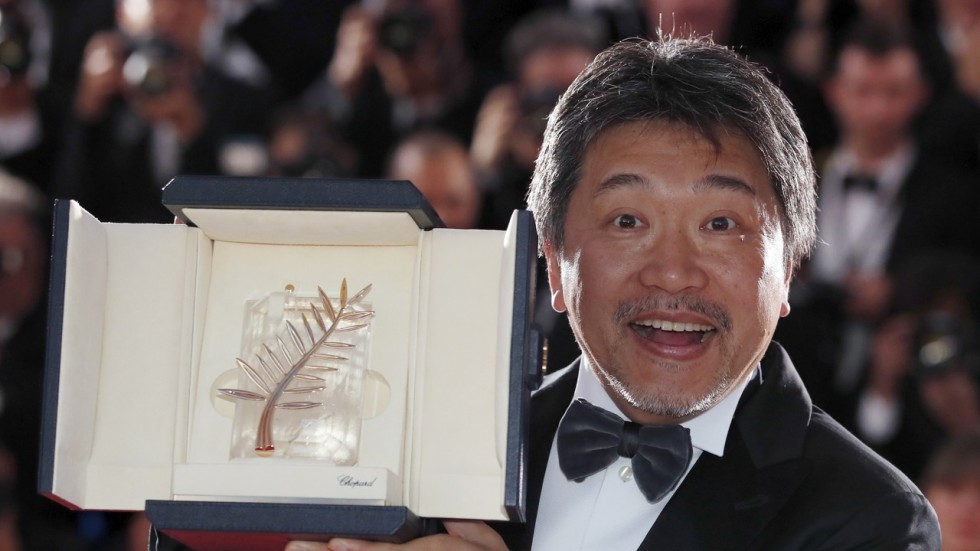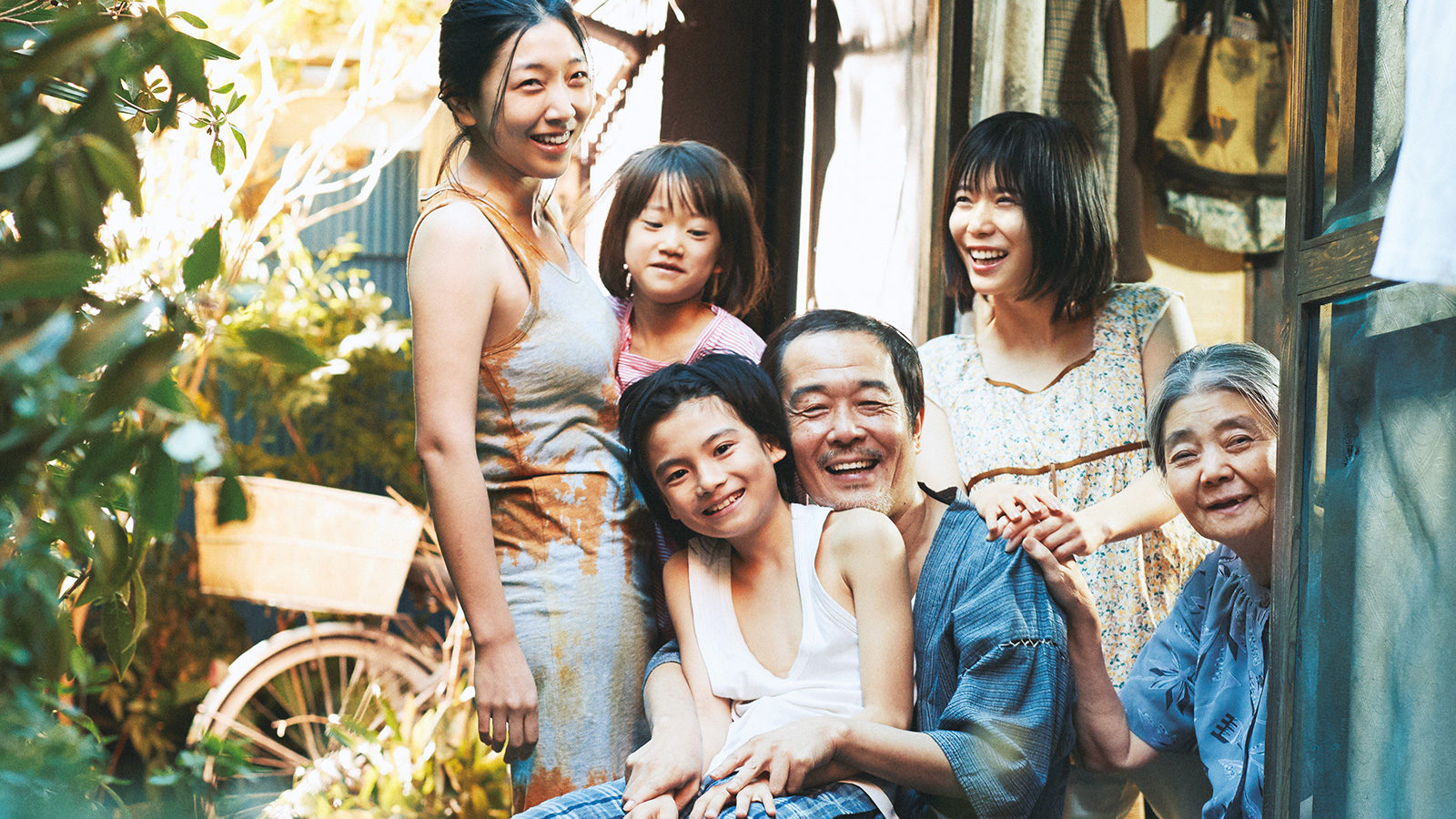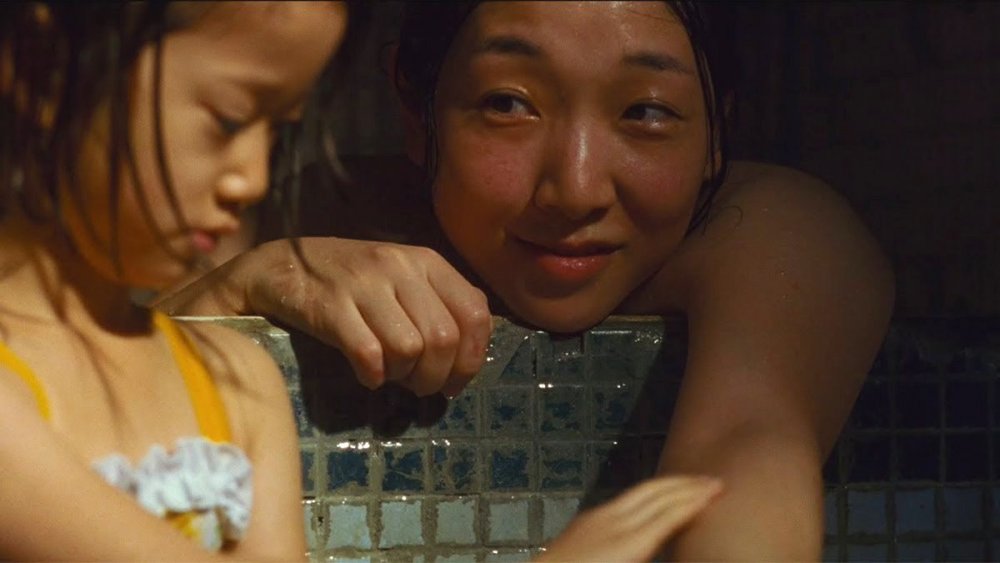 Kore-eda with his Palme d'Or for Shoplifters. Is an Oscar nomination next?
Kore-eda with his Palme d'Or for Shoplifters. Is an Oscar nomination next?
In Shoplifters Hirokazu Kore-eda (Like Father Like Son, After the Storm) tells us a story about how families unite with bonds of love and real connection rather than accidents of birth. Perhaps the best way to describe it is “humanist” as it puts connection, kindness and love at the forefront. According to the press notes, the director was inspired to write the story after learning about incidents of pension fraud in Japan - where families illegally received the pensions of parents who had already died years ago - and the severe criticism the perpetrators got.
I am wondering why people get so angry over such minor infractions even though there are many lawbreakers out there committing far more serious crimes without condemnation.
Shoplifters traces the relationships of a makeshift family that survives through petty crime, shoplifting and the grandmother's pension. Kore-eda, who wrote, directed and edited the film, won the Palme D’Or at this year’s Cannes Film Festival. The film was a runaway commercial success in Japan and is considered a frontrunner for a nomination in this year’s Foreign Language Film Category at the Oscars. On a break from shooting his latest film with Juliette Binoche, Catherine Deneuve and Ethan Hawke, we spoke with him on the phone about Shoplifters, his writing process, and why he’s great with child actors. This interview has been edited and condensed for clarity...
MURTADA ELFADL: Familial bonds whether by connection or blood is a continuing theme in your work. Why does this interest you?
HIROKAZU KORE-EDA: I don’t really know why. And if I try to explain it, it won’t be the truth. But at one point my parents passed away, and around that time I became a parent myself. Something was lost but something new came and filled that space. I began to see family in a different way than I had before. It was no longer something fixed, but rather fluid. Like a chain link connecting one generation to the next. So I became fascinated with the idea that a family is not a fixed in time, its definition is changing constantly. I thought that is worth taking the time to depict and explore in film.

“Maybe the bond is stronger when you choose your family," says one of your characters. To me that was an impactful moment and goes back to what you were just saying. Can you talk about it?
The character that says that is Nobuyo, the mother. I didn’t feel necessarily that she declared a truth, rather it was her wish for that to be true. I don’t deny that there is some truth to that as well. The reality however is that families who are chosen often don’t last. And that’s what the grandmother says. I would like it to work but I also wanted to interject some reality into it using the grandmother’s voice.
These characters advocate for themselves, open their hearts to the audience, spell out the themes of the movie. Being so straightforward with your themes is a risk that worked beautifully. Can you elaborate on why you took this direction?
When I was creating the film I realized that [at first] it wasn’t clear how they came together. I thought that wasn’t fair. This came about because I wanted each character to make it clear why they wanted to be in this family.
There is a density and depth to your stories and characters that’s reminiscent of novels. I’m interested in your writing process and how you come about it?
That is a difficult question. First there's the person, a human. Then the situation and what if that situation causes the human to do something? I don’t know if it’s right or wrong but I don’t actually sit down and write all the details about each character, their whole history. If you were to attend a screenwriting course, often they’d tell you to sit down and define each character before writing the script. I don’t believe in that, I don't think character development is the way to go.
For me it’s the relationships. The relationship between one person and the person standing in front of them. It’s the way they move, the way they react, and how they relate to each other. That’s what defines them. Take for example the character of the father Osamu, he’s defined by the context of the relationships around him. The story comes out of the numerous interactions between these different people.

Sakura Ando gives a phenomenal performance as Nobuyo. Can you talk about your collaboration with her?
I agree that she is phenomenal. To answer quite honestly, I first heard about Sakura Ando through actors or cameramen who are friends of mine or who I worked with. They all said she was amazing. I was still unsure she’d be right for my film because the part of Nobuyo was written for someone who’s in their 40s. However I ran into her in the neighborhood and we just talked for a little while. And then I ran into her a second time. After that I thought she might be the best person for this role [despite her age] and I offered her the job.
You are a director who has successfully directed children in many of your films. How do you work with them?
Thank you saying they are successful. For 15 years the way that I have worked with children is I never give them a script. They have no idea about the full story. Everyday when they come on set, I tell them each individual line when they need to know it. So I whisper in their ears this is your line, this is what you are going to talk about, sometimes they choose their own words. But also during auditions I choose children who specifically seem to respond to that method well. Once I’ve chosen them I organize activities to create trust and a relationship with them. My goal is to have them come to set every day smiling, excited and looking forward to the work. That’s my approach.
Shoplifters opens in New York and LA this Friday, November 23rd. It was just nominated for the Spirit Award for Best International Film.